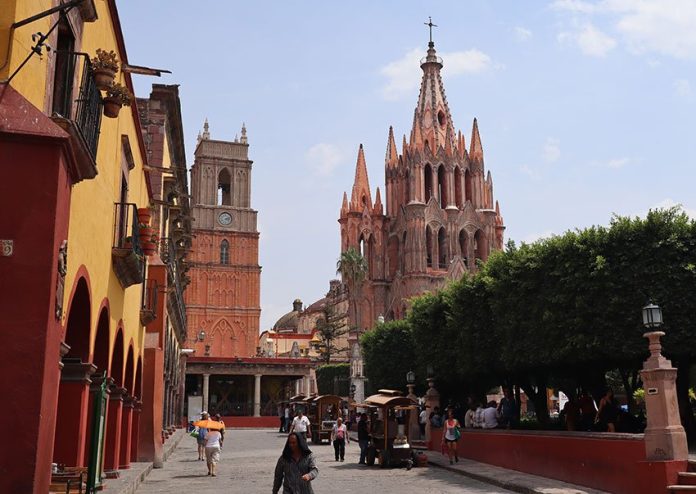In San Miguel de Allende, it is said foreigners live here either because they want to be forgotten, or because there’s no one left to remember them.
This small-town alchemy of anonymity and forgettability laid the groundwork for an alleged decade-long Ponzi scheme estimated to have stolen US $40 million from more than 150 Banco Monex accounts belonging to United States, Canadian, British, European and Australian expatriates.
While several local Mexicans were also embroiled in the bank fraud, the vast majority were among the foreigners who make up 10% of the population in San Miguel, a UNESCO World Heritage site known for its historic streets and La Parroquia de San Miguel Arcángel.
As the scope and scale of the fraud begins to unfold, retirees and elderly with little savings and less family support are settling for half or less of their lost funds in restitution, hoping to eke out a life with what little resources they have left.
“People live in San Miguel for two reasons, but whether wanted or unwanted, the result is that they end up forgotten. Banco Monex used this to take advantage of people, and then not act in good faith when the fraud was exposed,” said Arvin Kagan, who moved from Chicago to San Miguel more than two decades ago.
Kagan, who banked with Monex for 15 years, was told earlier this year that his account was closed in 2015, despite the fact he continued banking with them for the following four years.
“Pesos, dollars, stocks purchased through them they were holding — I had all of that. But Monex claims all the documents received from them were fake, and that none were real,” Kagan said.
Kagan is among a small handful of larger account holders challenging Monex’s handling of the fraud in a legal battle that could ultimately play out in the U.S. and is currently being considered by the Banking Commissioner of Texas.
Most prominent among the group is Howard Haynes, an 83-year-old philanthropist from Kansas City who has lived in San Miguel for 22 years, 10 of which he served on the board of the Community Foundation of San Miguel. In 2010, he received Hospice San Miguel’s first community caregiver award for volunteering and financial support.
With his Monex accounts established primarily for these charity donations and philanthropic scholarships, Hayne’s losses were among the largest of all the San Miguel fraud victims. His funds were drained to almost nothing and moved between accounts, without his approval, to and from people he’d never heard of.
Mexico News Daily spoke to more than a dozen victims for this story, half of whom refused to be identified, fearing for their personal safety or reprisal from Monex, which forced them to sign lengthy documents in Spanish in exchange for receiving settlements.
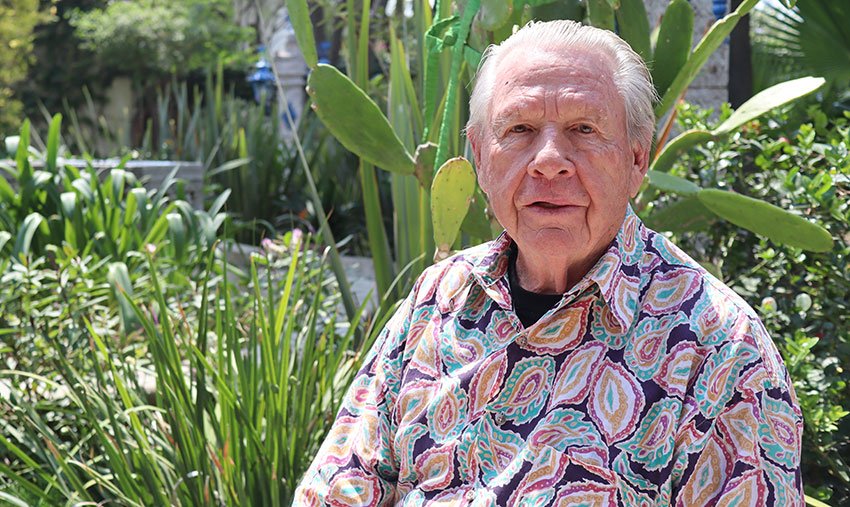
“A number of people are very much in fear that if we expose them in a much broader sense they are not going to make good on the losses,” Haynes said. “I’m 83, not 23, I’ve been here a long time so I’m not quite as afraid of speaking out. I firmly believe that people at the top of Monex were very aware of what was going on.”
Banco Monex claims the stolen funds and affected parties are lower than original estimates of $40 million from 158 accounts, and says they have settled about two-thirds of the cases.
“On this matter, a total of 49 complaints have been received verbally and in writing from clients of Banco Monex and Monex Casa de Bolsa, totaling 160 million pesos ($8.2 million), of which 35, that is, more than 70%, have been resolved,” said Banco Monex spokesman Fernando García Velasco in a prepared statement.
Victims dispute this figure, as a small number of the larger account holders claim their losses alone come close to the total amount claimed by Monex. Many of the cases settled are smaller account holders without the resources to challenge the offer.
In other cases, there are disputes over the difference between money that was originally deposited and the allegedly false rates of return being communicated in fake statements to victims.
Banco Monex said additional details of the complaints or settlements could not be disclosed because of legal procedures currently in progress. They were, however, able to disclose the identity of the employee being investigated by Mexican authorities and internally by the comptroller of Grupo Financiero Monex.
“Monex reiterates that, since January, it initiated legal proceedings in relation to Marcela Zavala Taylor, in addition to all the legal actions that correspond to the acts and acts that were generated from this situation, including criminal, civil and labor actions,” Velasco said.
It is understood that Zavala was removed by the company in December 2018. It was around that same time victims first began realizing they had been part of an elaborate Ponzi scheme — funds were siphoned out of one account to cover theft from another — that had been running, at their best estimates, for up to 10 years.
The daughter of former San Miguel mayor Manuel Zavala and Peggy Taylor, a Christies International Real Estate agent originally from Texas, Zavala used her connections to build Monex’s Rolodex.
Haynes began banking with Zavala and Monex over a decade ago at the recommendation of his close friend, former U.S. consul Phil Maher, who personally vouched for Zavala.
Over the years, Haynes developed a close relationship with her. Thinking she couldn’t afford medical bills, he took her to his own eye doctor for treatment of a degenerating eye condition.
“I was beyond trusting and considered her a close friend of over 20 years, I had sent so many people to her as customers because I had nothing but trust,” Haynes said.
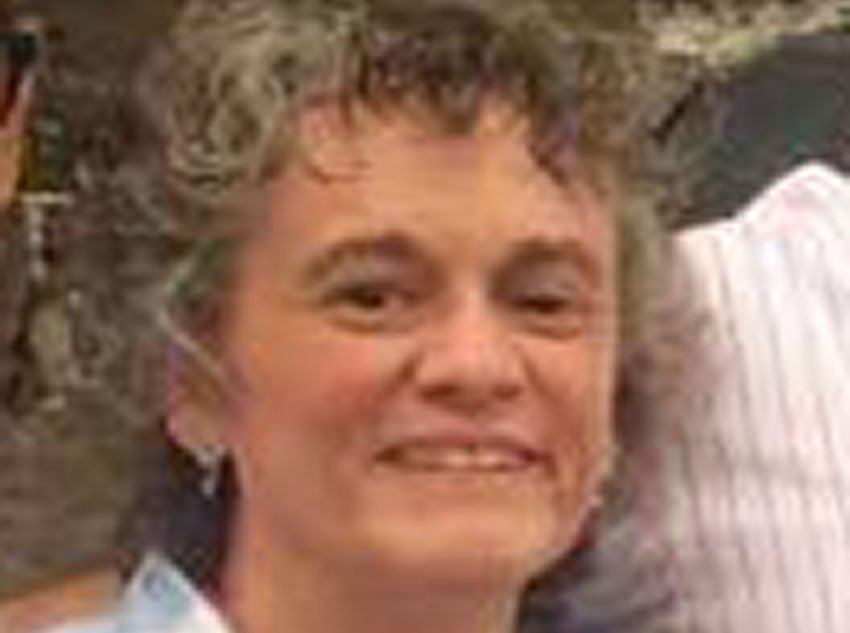
“She never came to our parties because she didn’t drink, but she would come up in the mornings, we would have coffee and chit chat and gossip and develop a friendship. Every year before Christmas, Marcela would bring a fabulous basket of pastries made by her partner and one of Monex’s beyond spectacular coffee table books. Last December there was no Marcela. There was no book. And there was no pastry, and that’s when we knew something was wrong.”
Marcela was considered extremely bright and clever, but most of the victims interviewed believe she couldn’t have accomplished such a broad scheme and cover-up, involving so much money, alone.
“I know first-hand if someone put something in front of her face she wouldn’t be able to see it. The kind of eye disease she had was too far gone. I suspect she is damn near blind,” Haynes said. “I’m not trying to take the blame off of Marcela, because she was obviously very heavily involved, but there were other elements going much deeper.”
As far back as they can remember, Monex victims report Zavala employing a contractor identified as Juan Tovar who worked directly with her — not Monex — to be a personal courier between the bank and customers. Tovar has not been named by Monex or victims as being involved in the alleged fraud.
Zavala’s pitch to bank with Monex was simple: pick up the phone, say how much money was needed and within two hours, Tovar would turn up on his motorcycle with bags full of Mexican pesos.
For Kathy Machir, 67, and her husband James, 72, this system worked for about nine years. They cashed in their 401K, sold their house, moved to San Miguel and put $242,000 in the Monex Casa de Bolsa to build their dream retirement home.
“At some point we suddenly stopped getting statements. After asking over and over again, we were told the whole computer system was being changed,” Kathy Machir said. “Then all of a sudden we started getting these statements that were weird, but as far as we knew they were Monex statements. Things appeared to be where they should have been.”
In December 2018, Tovar stopped showing up on his motorcycle with the bags of cash needed to pay contractors and finish building their home. With their accounts entirely drained and no offer of full restitution from Monex, they sold their 2012 Subaru in March for $9,300, a fire-sale price compared to the $13,000 Blue Book valuation.
“When that money runs out, we’re done. Everything we have left is in that house, the majority is pretty well under control, but I hope we won’t have to go back to work,” Kathy said. “Anything that we can eke out of our social security is what we will continue to work with.”
In a notarized letter hand delivered to Monex chairman Hector Lagos Donde, San Miguel lawyer Enrique Ramírez outlined 12 different forms in which the fraud was perpetrated against five account holders: Kathy and James Machir, Kenneth Karger and James and Kelly Karger.
The alleged fraud included: forgery, fraud through the misrepresentation of the meaning of documents in Spanish, embezzling funds from depositors’ accounts, unauthorized transfers, unauthorized investments, unauthorized liquidation, unauthorized transfers, diversion of wire transfers, unauthorized changes to names on accounts, unauthorized changes to depositors’ email addresses, unauthorized changes to account passwords, fraudulent statements and account balances.
“Monex and the officers and directors of Monex are financially responsible for the losses that their agents and employees inflicted on my clients,” Ramírez wrote in the letter. “These losses include, but are not limited to, the principal and interest on their accounts and lost profits from unauthorized liquidation of investments.”
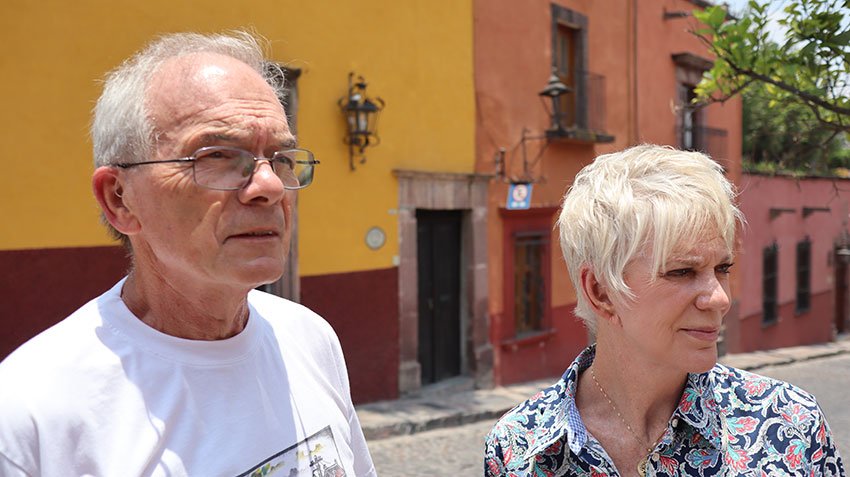
While it is unclear when exactly the alleged fraud began, victims report noticing increasingly questionable activity when Monex closed its San Miguel office and moved Zavala to handle their accounts from the Querétaro office in or around 2012.
Around that same time, Bruce Brown and his wife invested their life savings from Australia with the promise of 10% interest rates.
For the first 18 months they received “sketchy” monthly statements, so Brown kept his own spreadsheets using balances supplied by Zavala, with a rough percentage of earnings calculated between 8% and 12%.
Like everyone else, the Browns began to learn of the fraud last year.
“At our second meeting with Monex in Querétaro the lawyer in attendance told us that the money was being illegally removed from the affected accounts very early after the initial investment,” Bruce Brown said. “This means that the figures supplied by the promoter could have had no bearing on reality as they were supplied by her to cover up the fraud and not by the bank.”
Diana Cuevas, a partner at the legal firm Ibanez Parkman Lawyers, is representing up to five of the San Miguel-based victims of the fraud. She said they began losing access to, and control of, their accounts in one of three ways.
“We believe in some cases it was forging a signature. In other cases it was hacking into passwords and changing them. And sadly, clients having fully entrusted their accounts to certain people who worked at Monex,” Cuevas said.
“We’re surprised that the institution has not made their agents more responsible in this matter. We would hope that they make the agents more liable.”
Shortly after the fraud was discovered, executives at Banco Monex held group meetings with victims in January and February to negotiate settlements. Talks broke down almost immediately, victims say, after Monex representatives shifted blame on to account holders for being complicit in their own fraud.
“At the meeting they offered me 50% because they tried to tell me that I was 50% responsible for not looking at my statements,” Haynes said. “I just laughed. I said you must be joking. To tell me I’m 50% to blame is totally inaccurate and inadequate.”
For those unable to hold out for a better deal, receiving a settlement has been a long and painful process. As a condition of settlement, victims were directed to name Zavala in a criminal complaint to the Attorney General’s Office. The office did not respond to a request for comment.
On Monday, February 25, the Browns met with Monex representatives in Mexico City to make their legal statements. “During all the time I spent at Monex HQ I felt I was treated as the criminal and not the victim,” Brown said.
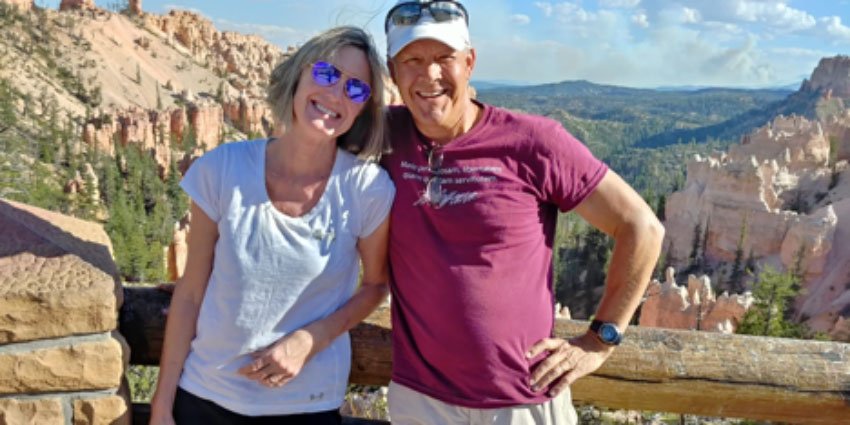
Retiree Cory Gray, 86, moved to San Miguel del Allende from Florida 35 years ago and opened a Monex account in about 2011 to live off her retirement savings. Alone and wheelchair-bound, she was forced to make the extremely difficult trip to Monex’s headquarters in Mexico City.
“They never made good to me at all. I’m not happy, but [based on] the fact that I had anything left to get I decided to settle,” Gray said.
An 82-year-old European retiree who banked with Zavala and Monex since 2005, who did not wish to be named for fear over her safety, said she was not allowed to deviate from the Monex-approved script in her denunciation before the Attorney General’s Office.
“They took me in and the lawyer directed me exactly what to say, and I was not permitted to mention Monex once, only Marcela Zavala, or I would not get my check,” she said.
The next day, she was taken to another authority in Coyoacán for handwriting analysis and other fraud investigation formalities.
After living in San Miguel for 23 years, the woman sold her house in 2016 and fled the city after her son was killed by a local gang while it was stealing his Harley-Davidson motorcycle. Parents of the gang members had blamed her for putting their sons in jail, making it too dangerous to stay in the area.
She deposited the $210,000 from the sale, but it was almost immediately drained to about $5,000, or 100,000 pesos. Statements received from Monex during the investigation showed unauthorized withdrawals from her account for things like “payroll” and “bonuses” to a number of unknown recipients, including Juan Murillo Tovar, Ramon Deanda, José Jamie Torres López, José Manuel Torres López and María Heidi Vazquez López Gómez.
“In the end, I fear I lost about $60,000. I’m missing a lot more, but I just couldn’t take it anymore. I’m 82. If I waited any longer I’d die of a heart attack,” she said. “San Miguel is a dangerous place. The town itself is very Americanized, but it’s very small and all around it is poverty.”
A former president of the Commission for the Protection and Defence of Users of Financial Services (Condusef) said that since Monex is an “international broker” that offered its services in Mexico and is not regulated, it cannot be supervised and regulated either by Condusef or by the National Banking and Securities Commission (CNBV).
“The institution acted in the name of Monex United States and did not operate in the facilities of Monex México, so no regulator has jurisdiction over them and those affected cannot file a complaint with Condusef, so they have to make a criminal complaint for fraud,” Mario di Costanzo said.
For retired Texan dentist Kenneth Karger, 63, this jurisdictional distinction may be the opening they need to hold Monex accountable for the full amount of their losses.
Karger and his veterinarian wife Mauri, 65, had property in Mexico for about 15 years before opening an account with Zavala and Monex. Within about four months, their balance went from about $400,000 down to about $250.
“She wiped everything out,” Kenneth Karger said. “We’d gotten into the Ponzi scheme, where she wiped out somebody, then went to someone else’s account and transferred into other peoples’ accounts to cover the call. Eventually she ran out of money.”
From the Dallas-Fort Worth area, the Kargers are one of the few victims not living in or around San Miguel. They’re also the most proactive in challenging Monex both in Mexico and the U.S.
The Kargers have engaged Mexico City lawyer Antonio Holguin of Bufete Holguín y Abogados to begin criminal and civil proceedings against Monex in Mexico.
In the U.S., meanwhile, they have met with Congressman Ron Wright, a member of the Congressional Foreign Relations Committee, and the Texas Banking Commissioner, Charles G. Cooper, in hopes of initiating an investigation in Texas, where Monex has branches in Houston.
Texas House of Representatives member Tony Tinderholt has been working with the Kargers to refer the case to the banking commissioner, which has the power to consider an investigation.
“Tens of millions of dollars were stolen from Texans and Americans, and it’s pretty disgusting that they said, ‘yes this happened,’ and they haven’t rectified it,” Rep. Tinderholt said.
“I’m pushing for investigations, legal action and to potentially shut them down in America. And if I have to I’ll go to the top levels of the United States; contact my congressman, my senator, we’ll go all the way to the president of the United States if we need to.”
In a statement of support to the Kargers, Texas state Representative Bill Zeder said he agreed with Rep. Tinderholt that the matter should be escalated publicly if not resolved promptly.
“To think that a bank would allow its employees to systematically rob accounts with impunity, and not make them whole immediately, is beyond belief,” Rep. Zeder said.
“Crime, corruption, cartel activity, money laundering might be common banking procedures at Grupo Financiero Monex in Mexico, but I will not let them bring those practices to Texas. We have zero tolerance here.”
Mexico News Daily
